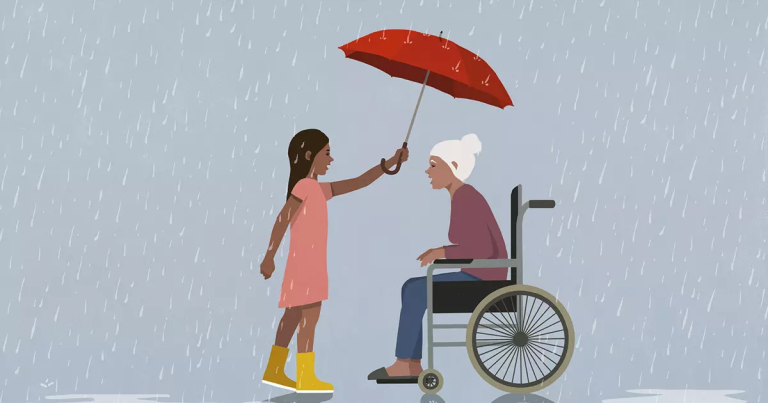
The Emotional Cost of Kindness: Why Nicer People May Be More Prone to Depression
New York, N.Y. — A groundbreaking 2017 study published in Nature Human Behavior has uncovered a paradoxical link between prosocial behavior—traits like fairness, empathy, and sensitivity to inequity—and a higher likelihood of depression.
The research, led by a team from Rutgers University and building on earlier work by Dr. Masahiko Haruno, suggests that individuals who prioritize equality and others’ well-being may pay an emotional price for their kindness.
The Science Behind the Findings

The study involved nearly 350 participants, primarily university students in Japan, who underwent personality tests to classify them as “prosocial” (60% of people, who value equitable resource distribution) or “individualist” (30%, who prioritize personal gain).
Using functional MRI scans, researchers observed brain activity as participants played an economic game allocating money. Prosocial individuals consistently rejected unfair deals, even when they benefited unfairly, and their amygdalae—the brain’s stress and emotion centers—showed pronounced reactivity to inequity.
A year later, these same participants reported higher depression symptoms, a correlation that held even when controlling for age, gender, and socioeconomic status.

The Guilty Brain
Dr. Haruno’s earlier work in Nature Neuroscience identified the amygdala as a core driver of prosocial orientation. Prosocial individuals exhibited stress responses not only when they were disadvantaged but also when they benefited unfairly—a “guilty amygdala” effect absent in individualists.
The 2017 study expanded this, linking prolonged amygdala and hippocampus activation (regions tied to primal stress) to depressive symptoms.
As Dr. Mauricio Delgado of Rutgers noted, this sensitivity may be hardwired, but higher-order brain regions like the prefrontal cortex can regulate these responses through therapies like cognitive behavioral therapy (CBT).
Limitations and Nuances
The study’s sample—young adults aged 18–26—raises questions about generalizability, as the prefrontal cortex matures fully around age 26. Cultural context also matters: the experiment was conducted in Japan, where collectivist norms may amplify prosocial stress. However, the robustness of the brain-behavior correlation across a large sample lends credibility. As Scientific American cautioned, the findings don’t condemn kindness but highlight a vulnerability that can be managed.
Broader Implications
The research intersects with longstanding psychiatric observations that excessive empathy and guilt are depression risk factors. A separate Nature perspective frames depression as a disruption of the “self-axis,” where somatic and narrative self-perceptions become negatively skewed. Prosocial individuals’ heightened awareness of social inequity may exacerbate this, embedding depressive patterns in primal brain networks . Meanwhile, a 2024 study debunking “depressive realism” (the theory that depressed people see the world more accurately) underscores that depression distorts cognition—suggesting prosocial sensitivity isn’t “wiser,” just more emotionally taxing .
Therapeutic Pathways Forward
Experts emphasize that prosocial traits needn’t be discarded. Dr. Delgado advocates for CBT to strengthen prefrontal regulation over amygdala-driven stress. Similarly, interventions like mindfulness and art therapy—shown to alleviate depressive symptoms in creative populations—could help prosocial individuals channel their sensitivity productively. The study ultimately reframes kindness not as a weakness but as a trait requiring emotional scaffolding.

A Global Mental Health Perspective
With depression rates rising 49% globally from 1990 to 2017 (per The Global Burden of Disease study), understanding subgroups at risk is critical.
Women, who are disproportionately diagnosed with depression, often exhibit stronger prosocial tendencies—hinting at a potential neuro-social interplay.
Meanwhile, digital behaviors (e.g., consuming negative online content) may reinforce depressive loops, suggesting screen-time adjustments could complement therapy .
Conclusion
The 2017 study illuminates the invisible toll of fairness—a reminder that societal values like empathy must be paired with mental health support. As research evolves, the goal isn’t to pathologize kindness but to equip kind minds with tools to thrive. In a world that often rewards self-interest, the challenge is to protect those who care deeply without sacrificing their well-being.
Study: Nicer People More Prone to Depression Than Selfish (May 1, 2025)